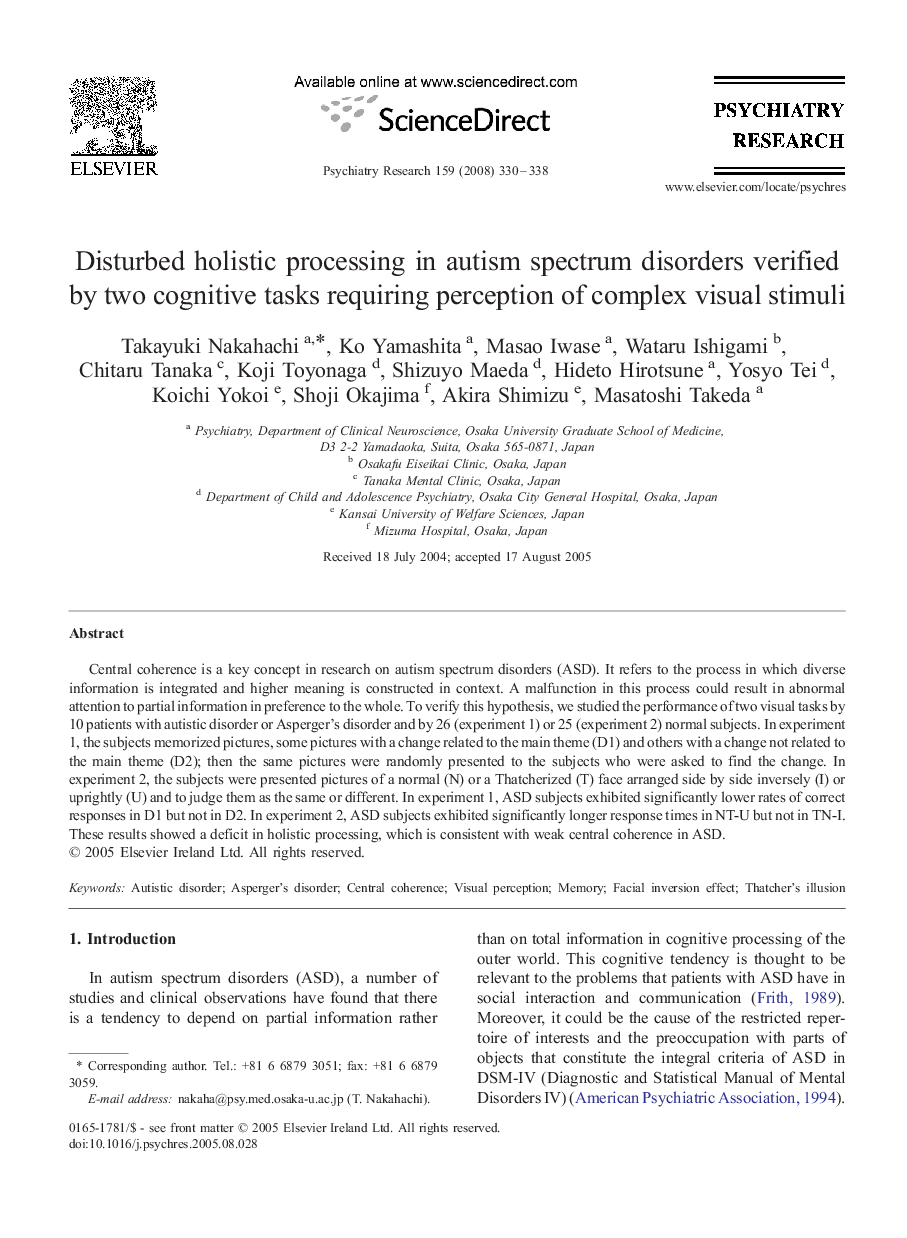| Article ID | Journal | Published Year | Pages | File Type |
|---|---|---|---|---|
| 334003 | Psychiatry Research | 2008 | 9 Pages |
Central coherence is a key concept in research on autism spectrum disorders (ASD). It refers to the process in which diverse information is integrated and higher meaning is constructed in context. A malfunction in this process could result in abnormal attention to partial information in preference to the whole. To verify this hypothesis, we studied the performance of two visual tasks by 10 patients with autistic disorder or Asperger's disorder and by 26 (experiment 1) or 25 (experiment 2) normal subjects. In experiment 1, the subjects memorized pictures, some pictures with a change related to the main theme (D1) and others with a change not related to the main theme (D2); then the same pictures were randomly presented to the subjects who were asked to find the change. In experiment 2, the subjects were presented pictures of a normal (N) or a Thatcherized (T) face arranged side by side inversely (I) or uprightly (U) and to judge them as the same or different. In experiment 1, ASD subjects exhibited significantly lower rates of correct responses in D1 but not in D2. In experiment 2, ASD subjects exhibited significantly longer response times in NT-U but not in TN-I. These results showed a deficit in holistic processing, which is consistent with weak central coherence in ASD.
